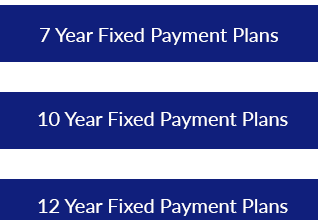How LMS Integrations Can Improve Data Management and Analytics for Educational Institutions

Learning Management Systems (LMS) have become more important than ever. It has become the backbone of educational delivery in the digital age.
They are providing a faster track to managing courses. They are engaging students. They are tracking progress.
But LMS integrations go beyond these functionalities. It’s power lies in its profound impact on data management and analytics. Here’s how these integrations can benefit educational institutions:
Streamlined Data Collection
Integrating an LMS with various educational tools and platforms allows for the seamless collection of data from multiple sources.
This streamlined approach eliminates the manual entry of data. It reduces errors. It saves precious time.
Educators can quickly access a wide range of data. This includes student engagement metrics, assessment scores, and attendance records. It can all happen from a single platform.
For example, you can have actionable assessments in one place. You won’t need to log in to different systems. This way, instructors can effectively review student performance and identify areas for improvement.
Enhanced Data Analysis
All the data are collected in one place with LMS integration. This can provide more comprehensive and accurate insights.
Educators can analyze student performance across different courses. They can even compare it to previous years. They can also identify areas for improvement in teaching methods and course content.
Personalized Learning Experiences
Integrating an LMS with legacy learning platform tools enables better courses. It enables personalized learning experiences for students.
Educators can use data collected from various sources. They can use them to identify each student’s strengths and weaknesses. They can then create customized learning paths for students. They can base it on their needs and the track they want.
This not only improves the overall learning experience. It also helps in better understanding of students’ progress.
Improved Administrative Efficiency
LMS integration improves administrative efficiency.
With all data in one place, administrative tasks can be easily managed. It eliminates the need for duplicate data entry or manual paperwork. You won’t have to grade or track attendance manually.
This not only saves time but also reduces the chances of errors. It allows educators to focus more on creating better learning experiences for students.
Comprehensive Reporting
LMS integrations provide great reporting capabilities. This enables educators to generate reports. They can do this in various aspects of the learning process.
They can track attendance. They can look into student engagement. They assess course completion rates.
These reports can be used for administrative purposes. They can also be used to identify areas for improvement in teaching methods.
Additionally, integrated LMS also allows for real-time reporting. This means that educators can track student progress. They can make necessary adjustments in real-time.
Foster Collaborative Learning Environments
LMS promotes collaboration. It allows for interactive group activities. It also encourages peer learning and feedback. Students can share resources and work on projects with each other.
This not only improves student engagement. It also fosters teamwork skills that are essential for the future workforce.
LMS Integrations Are the Future of Education
LMS integrations have revolutionized the way education is delivered. They have made it more efficient and effective.
It is not just a trend but a necessary tool for educators and students. So, it’s time for educational institutions to embrace LMS integrations and adapt to the digital age for the betterment of education. The future is here.
Did you find this article helpful? If so, check out the rest of our site for more.



